Flooring Services
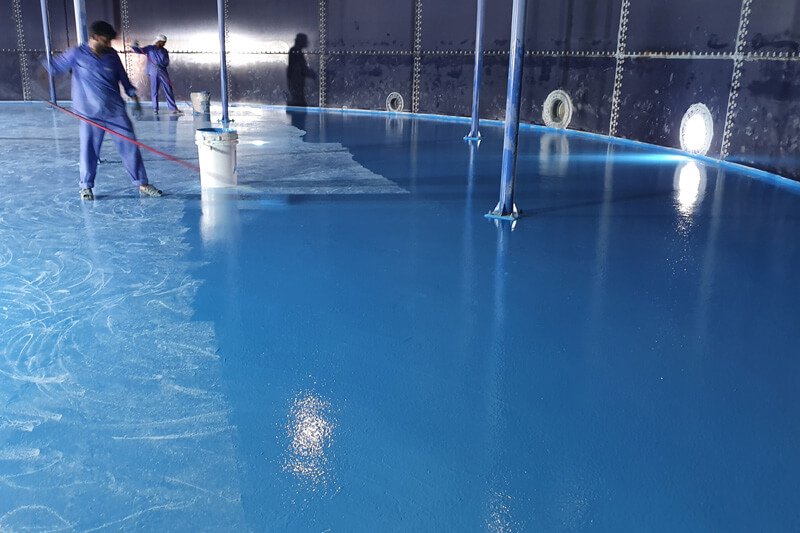
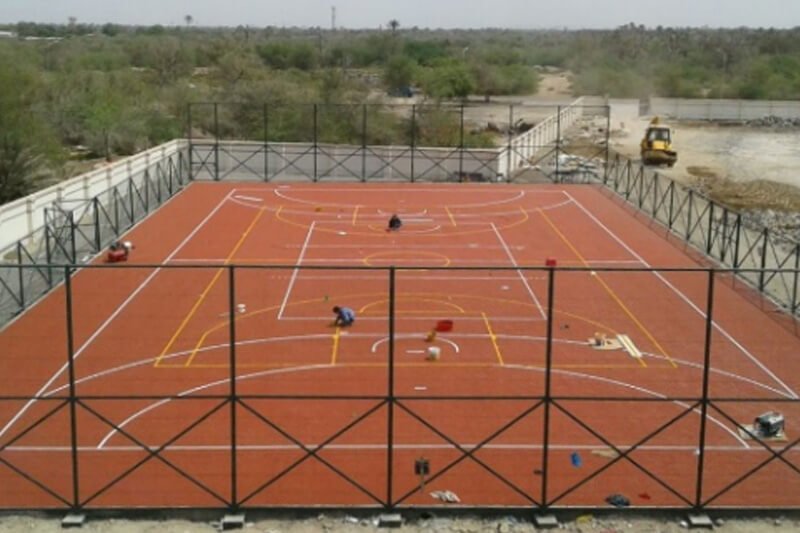
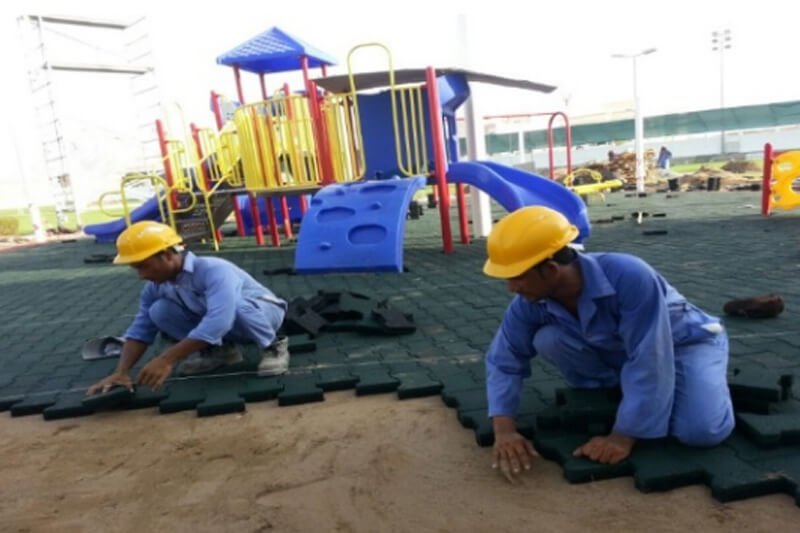
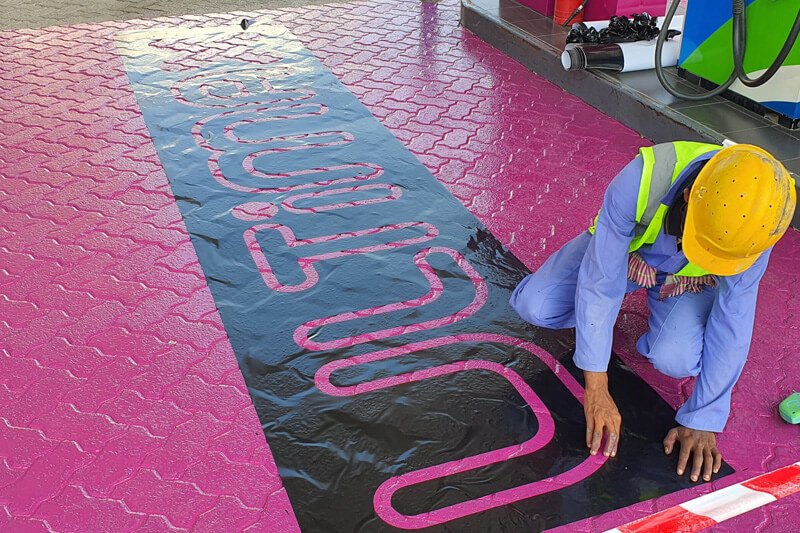
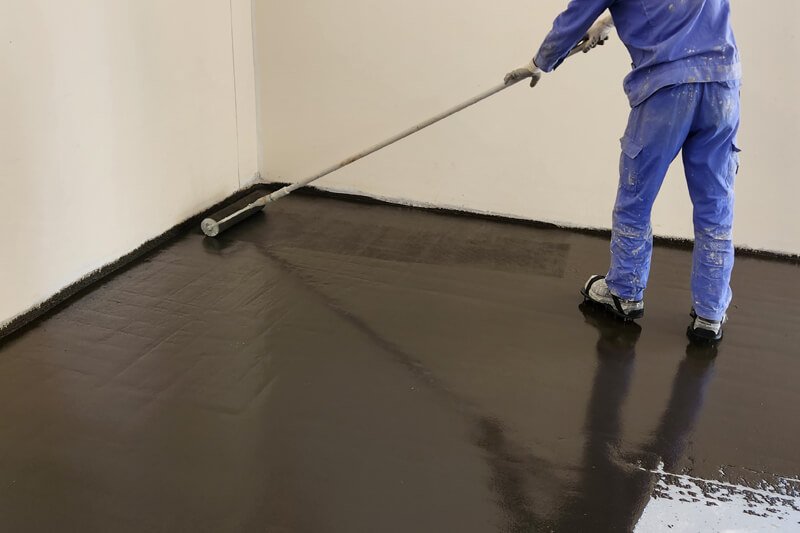
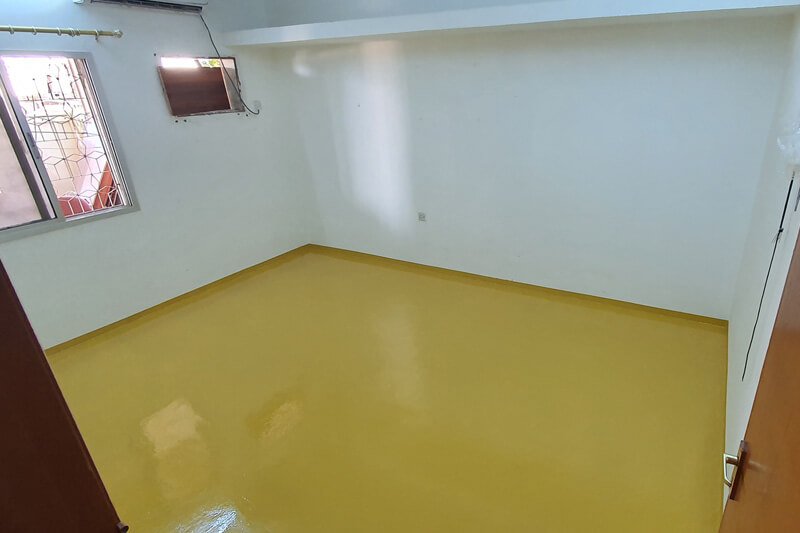
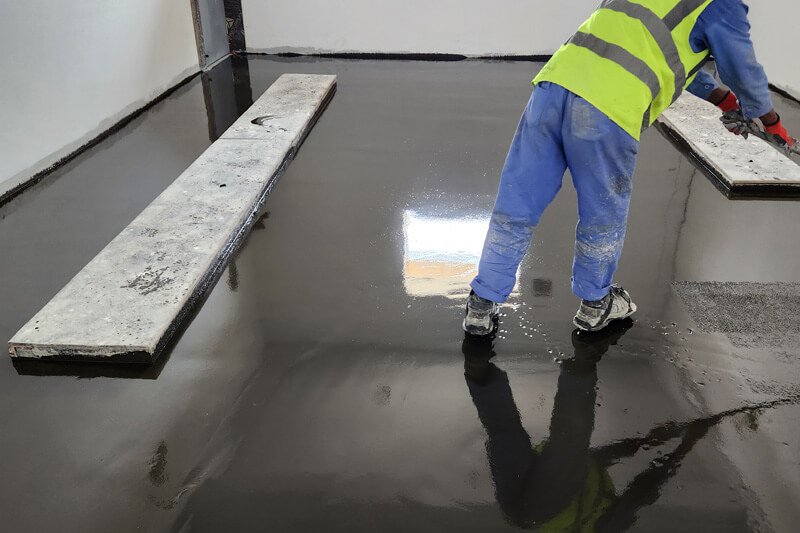
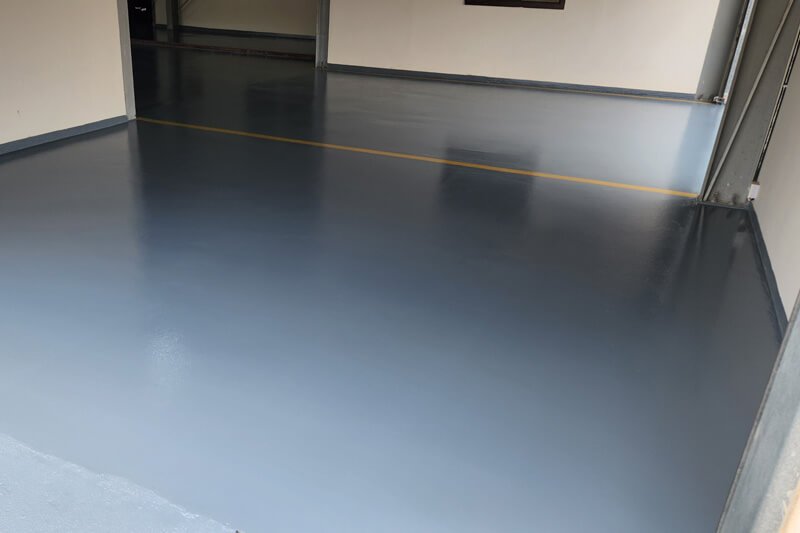
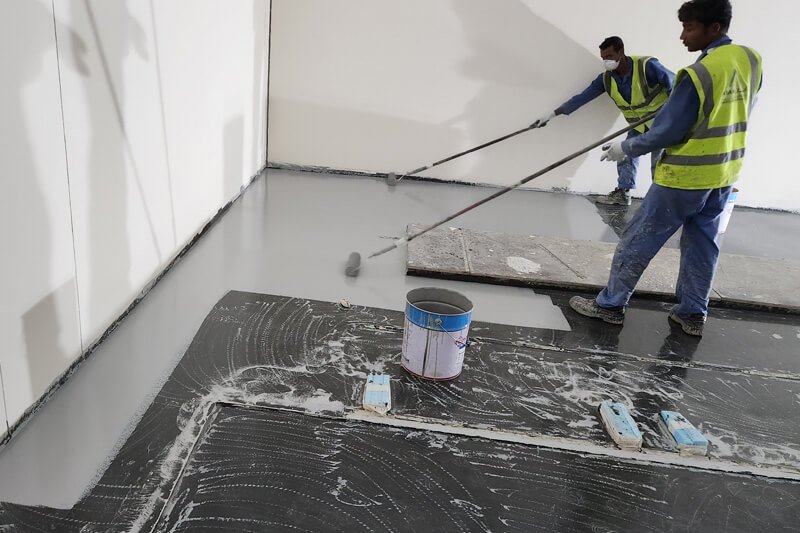
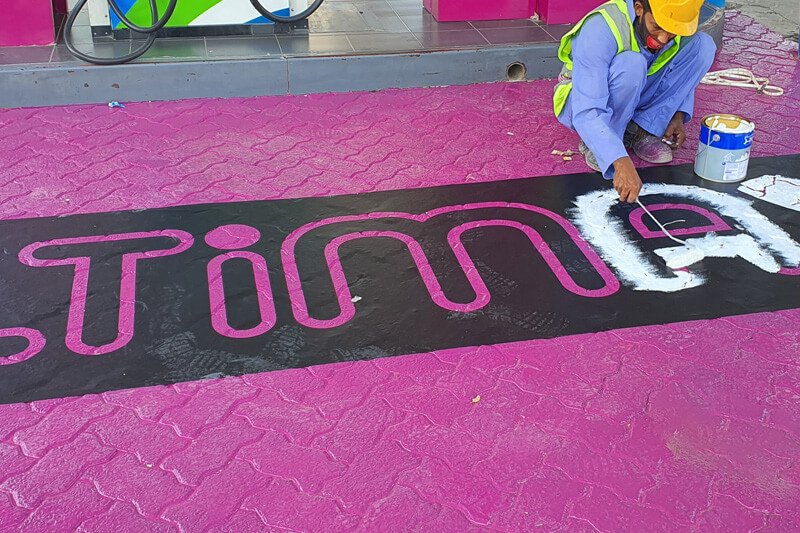
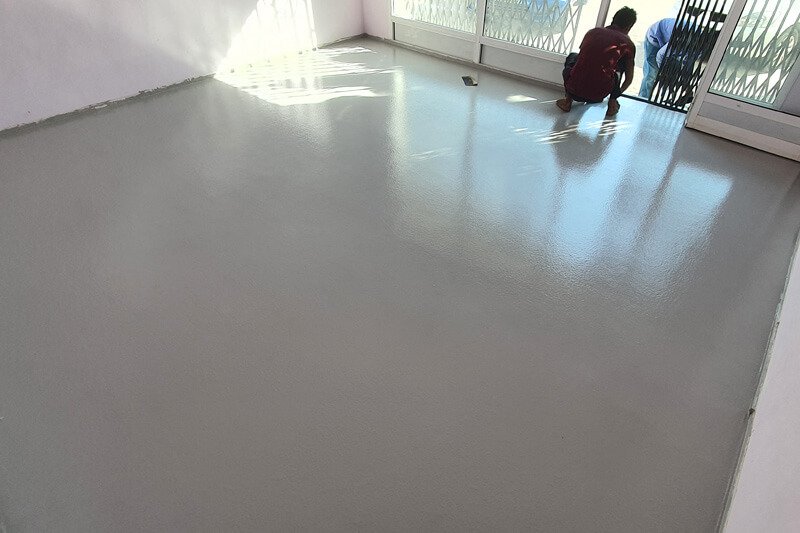
Ultratech provides comprehensive services for industrial concrete flooring, encompassing tasks such as reinforcement fixing, concrete pumping, concrete laying, and finishing. Our expertise in high tolerance floors and surface hardeners allows you to leverage years of experience in industrial concrete flooring without the need to hire your own workforce.
Sports Floors
- Synthetic Flooring
- Acrylic Flooring
- EPDM Flooring
- Polyurethane Flooring
- Gym Flooring
- Artificial Turf
- Rubber Tiles
- Cork Tiles/Pavement
Laser Screed Flooring
Using the latest laser screed machinery, we can lay high tolerance concrete floor slabs up to 2000 m2 in a single day. The tolerances achieved with our machine in free movement slabs are FM1, FM2 (special), FM2, and FM3 in accordance with the TR34 Document. DM1, Category 1, & Category 2 required for high bay racking are achieved through laser screed large pour methods in defined movement slabs.
When it comes to large pours requiring tight tolerances, our big laser screed flooring machines are the perfect choice. However, for smaller floor areas that demand precision, we have the capability to utilize our smaller laser screeds and power rakes. This allows us to lay a high tolerance concrete floor in areas where the use of large laser screeds is not feasible.
Hand Lay Method
Our team consists of highly skilled operatives who excel in manually laying concrete slabs by hand. With expertise in screeding, we can achieve remarkable tolerances, including FM2 (special) or FM2. Depending on the width of the bays, we are capable of providing both Category 1 and super flat floors using this manual technique.
In addition to meeting the mentioned tolerances, we are proficient in hand laying extensive areas to ensure proper drainage. This practice is particularly common in external yard spaces and concrete slabs with installed drains for liquid disposal.
By employing this method, we can efficiently lay and finish concrete slabs spanning 1000m² in just one day. Whether it’s ground floors, upper floors, or external yard slabs, our team is equipped to handle the task.
Furthermore, even in cases where the use of laser screeds is impractical due to construction limitations, we can still achieve high tolerance floor slabs using our manual laying approach.
Power Float Concrete
Power floating of concrete creates a durable surface that is suitable for areas with heavy foot traffic and forklift movement, depending on the thickness. Power float machines are equipped with circular pans to initially smooth the concrete, followed by the rotation of metal blades to adjust the tilt and achieve a hardened surface.
However, before power floating can take place, the concrete must be allowed to cure, which means that concrete poured in the morning usually requires waiting until late afternoon before power floating can commence. The specific timing depends on the concrete mix and external conditions. The process of power floating produces a flat, smooth, and dense finish.
For foot traffic, the minimum recommended depths are 75mm for bonded surfaces and 100mm for unbonded surfaces. For areas with vehicle traffic, the design depth ranges from 150mm to 350mm, depending on the expected loads. The drying time for foot traffic is typically 24 hours, with the concrete drying at a rate of approximately 1mm per day. It is important not to artificially accelerate the drying process. These types of floors can be reinforced with mesh, plastic, or steel fibers, depending on the intended use and expected loads.
Hand Trawled Finish
Easy-float concrete offers a durable surface that is ideal for computer floors, carpeted areas, and tiled spaces. The process involves laying and leveling the concrete using either a pump or by discharging it from the back of a wagon. Once the concrete is leveled with a tamp, it is hand-floated using an Easy-float tool to achieve a smooth finish. Although this finish may not be as flawless as power floated concrete, it is still suitable for carpeting, screed, or tiling applications.
The minimum depths for foot traffic range from 75mm for bonded surfaces to 100mm for un-bonded surfaces. For areas with heavier loads, the concrete design typically ranges from 150mm to 350mm in depth. The drying time required for foot traffic is approximately 24 hours. Concrete naturally dries at a rate of around 1mm per day and should not be artificially accelerated. Depending on the specific use and load requirements, these floors can be reinforced with mesh, plastic, or steel fibers.
Dry Shake Toppings
In certain cases, we have the capability to apply a dry shake surface topping to any floor slab we install. This is done for various purposes, such as enhancing the visual appeal of the concrete by introducing different colors, reinforcing the surface, or meeting specific requirements for abrasion resistance, such as AR special or AR1.
The amount of dry shake used depends on the design and intended use of the floor slab. There are two methods we employ to apply this topping:
- Hand spreading: We manually distribute the dry shake topping across the surface of the slab.
- Pedestrian tremex spreader: We utilize a pedestrian tremex spreader to evenly distribute the dry shake topping.
Regardless of the method chosen, we ensure that the necessary dosage (in kilograms per square meter) is uniformly spread over the slab. Through our established partnerships with various dry shake topping manufacturers, we have the ability to customize the material application to meet the specific requirements of our clients. Additionally, we typically facilitate pre-start meetings with these suppliers to guarantee the satisfaction of both the client and the supplier with the installation of the slab and the topping.
Epoxy Based Industrial Floor Coverings
Our company specializes in developing and recommending customized systems for companies involved in heavy services and industrial production. We focus on specific dye and covering production, tailoring solutions to meet the unique needs of each client. One of our prominent offerings is the Epoxy Floor Covering Systems, which have a wide range of applications across various sectors, including food, textile, and petrochemistry.
Epoxy floor coverings find extensive application in industries such as textile, food, and hospitals, where dust emission is unwanted. They are also ideal for factory floors that require mechanical resistance to handle heavy machinery, equipment, and hardware. Additionally, dying plants, drug production facilities, and petrochemistry facilities benefit from these coverings due to their ability to withstand heavy chemical impacts. By implementing our epoxy floor coverings, establishments gain advantages in production performance, product quality, compliance with international standards, and long-term cost-effectiveness. These coverings provide long-lasting mechanical and chemical resistance, directly enhancing the production quality in heavy industry and industrial settings.
- Industrial Epoxy Floorings
- Epoxy Terrazzo
- Stamped Concrete
- Specialized Concrete Repairs
- Traffic Deck Coating for Car-park and Basement Floors
- Insulation of Galvanic Corrosion Control Systems
- Factory and Warehouse Repairs
- Waterproofing
- Outdoor Weather Proofing Coats for Buildings